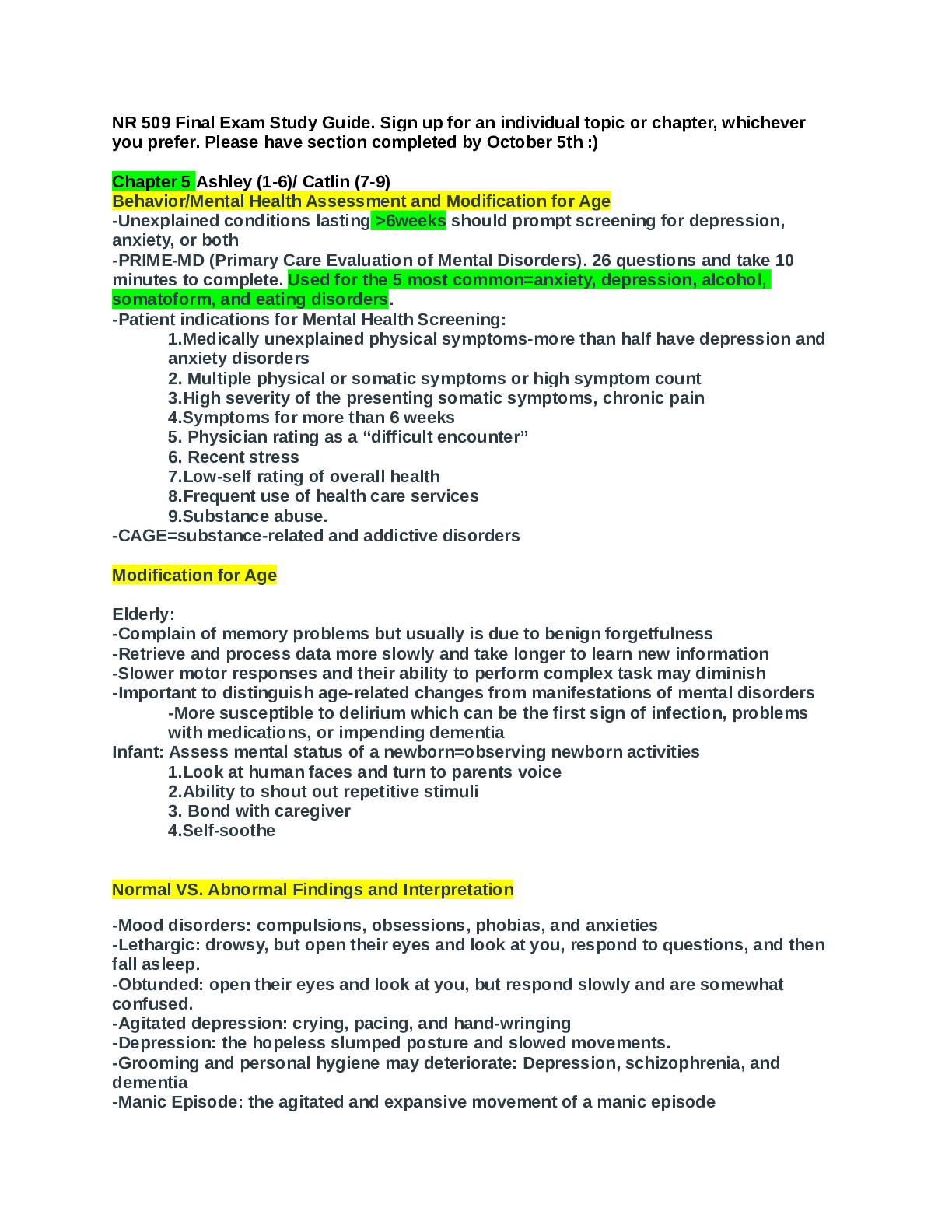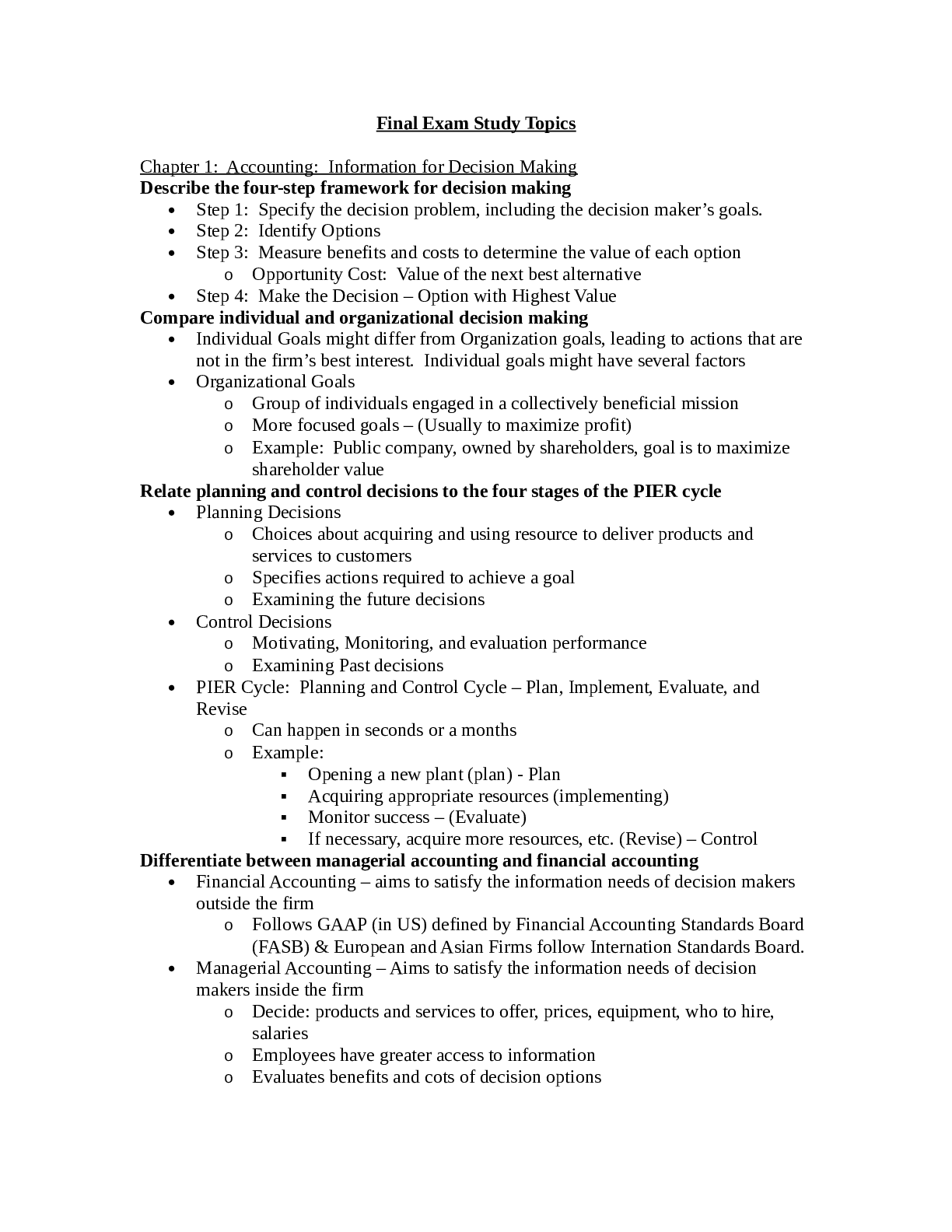Business Management > EXAM REVIEW > Business Ethics Final Exam Study Guide | DePaul University - BUSINESS MISC | RATED A+ (All)
Business Ethics Final Exam Study Guide | DePaul University - BUSINESS MISC | RATED A+
Document Content and Description Below
As previously stated, you will see three of these questions on your final exam and you will have to choose two to write about. To do well on this exam, you cannot just provide the quick answer to the ... question…you will need to explain how the author comes to their conclusion about an idea by providing their supporting claims and explaining their overall argument. Also, please note that you can use an author or article only once in the exam. 1. Given your understanding of Adam Smith’s description of sympathy and one additional author of your choosing: 1. how would their theories/beliefs understand the possibility of a person feeling responsible for the economic concerns of an individual on the other side of the world? 2. What challenges/advantages do Smith’s notion of sympathy and your chosen author’s view pose for us as we move into a globalized economy? 3. In answering these questions, please offer a detailed description of the functioning of sympathy in the work of Adam Smith. Answer: Part A: Adam Smith described sympathy as an automatic reaction. Whenever we see people in pain, we cringe. Whenever we see people happy, we cannot but smile. Through our own faculties and senses, we attempt to imagine what it is like to feel another person’s life with our own. B: As we move towards a more globalized economy, the challenge of “blind” sympathy will need to be addressed. People will have to interact with others without faces or names, and feel sympathy toward them. Without this sympathy, the economy would not be as efficient and robust as the work of the combined taskforce. (Part A and Part C) We can indulge on our own self-interest, but we cannot allow that to turn into selfishness. Adam Smith work is basically an entire reading in his explanation on how it affects both us and other people. This is continued when there is a divide shown between sympathy and rules. Adam Smith is trying to make sure that we do not go too far to hurt others. An example would be the EARTHQUAKE VS. PINKY problem we learned about in class. We are willing to give up something important to us, as long as in the abstract, but as that turns into an actual probability we become more selfish and are not willing to do it anymore. --- for more info look at notes. Ending for part C: Sympathy is not pity or compassion. His use of sympathy is closer to the modern usage of the word empathy. Sympathy is an ongoing process. A. Hobbes would disagree with the notion entirely. He doesn’t believe that one should be sympathetic of other’s actions and contracts that they willingly went into. Moral obligations only arise from the contracts we go into. B. Moving towards a global economy, Hobbes notion of sympathy poses both challenges and advantages. In a global economy there will be many more interactions and contact with others in general where if one is constantly sympathetic it would take up too much time and thought space. There would be no self-progress. These interactions will be mostly faceless and impersonal to begin with since the globalization will be due to ease of communication. It is easy to be unsympathetic because of this but it leaves out the opportunity to be sympathetic if one follows Hobbes methods. Sympathy in a world where it’s easy not to be will carry much more weight. 2. The (US Catholic Conference of Bishops and Pope Francis) and Milton Friedman all believe in the benefits of the free market.Please describe how their views converge and diverge in describing the market and the effects of the market. In answering this question, please describe their ideal definition of economy or proper economic exchange, respective definitions of freedom and justice, their beliefs regarding the distribution of income/resources, and how society intervenes or doesn’t intervene in order to respect the freedom of a person. 1. The converge is: the market is an important tool that can be used to further society. 2. * The diverge is: Francis says that we can have regulation, but only have a few excepted from it. Those excepted are the wealthy. This is because if those who are wealthy are not regulated then we will see a future more economic benefit return by having them unregulated. 1. Friedman says that there should be no regulation because that is restricting a person’s freedom. A person is only free with no regulation. 2. Friedman also speaks about contracts, how no one is going to sign a contract that is not beneficial to them. This is because they do not want to be cheated. If you are going to do an action then there should be some return from doing that action. 3. Free market: small and limited government 4. Contracts and primarily transactions – voluntary, bilateral, informed 5. Freedom: People should be able to do what they desire with minimal limitations and intervention from the government 6. Justice: • 3 types of justice o 1) Commutative Justice – We own one another Ask for fairness in agreement and contracts (bilateral, voluntary, and informed) Asking if there is coercion o 2) Distributive Justice – Being nice and fair to one another We evaluate after the contract if dignity and access to fundamental resources still exists Asks if anything was corrupted in the process • Even if there was no coercion, is there a good life with this afterwards? o Redistribution – Taxes going up o 3) Social Justice – People who have been left behind must be reintegrated into mechanisms that let them provide for themselves If we can agree for people providing themselves a life in the economy, then we must push for social justice. • Commutative justice: negative capabilities • Distributive Justice and Social Justice: Positive intervention 3. 4. * 1. Friedman believes redistribution is unnecessary because everyone is already equal. It would threaten the foundations of capitalism if nobody had incentive to work towards rewards. He believes that the freedom of a person is the utmost important issue, and it can only be protected when there is no redistribution or interference with their actions. 2. The bishops believe that redistribution to the poor is key to improving an economy. Because if an economy is doing well yet its poverty levels are still high, then it is not a successful economy. While the economy is important, they must not forget the importance of people as well. They also believe the three types of justice: commutative, distributive, and social. 1. Friedman was saying that there should be no regulation because a person’s freedom is having to restrictions. A regulation is a restriction. 2. People should have freedom to exchange with one another. We should be able to buy and/or sell with each other without legal restrictions. Friedman considers this a necessary component because a restriction of this would be a restriction of our choices and actions. He defines freedom through the ability to enter into contract. People do not enter into contracts without being beneficial to them. 3. People’s decision in entering an economic transaction should be voluntary and they should be informed about what is involved in the transaction. The role of the government is to prevent coercion of one individual by another, the enforcement of contracts voluntarily entered into, the definition of the meaning of property rights, the interpretation and enforcement of such rights and the provision of a monetary framework. 1. Answer: We have the right to help and give to one another, however, it isn’t our civic duty to do so. It is ultimately the government job to provide for its people. 3. How do Aristotle and Thomas Hobbes describe the functioning of desire throughout the various aspects of life/types of management? Please address how each author describes the acquisitive/desirous spirit in their respective writings and how they understand desire’s relationship to proper living? Also address how the functioning of desire changes from one sphere of life to another. Finally, explain which view you find more amenable to business and detail why. a. Hobbes speaks about desire/appetite and aversion and how these two base concepts are the reasons for human actions and emotions. Hate is an intense aversion toward an object or person. Love is an intense desire towards a person or object. Hobbes basically breaks down in Leviathan most actions from good and evil, right and wrong are nothing more than how a person will categorize his desire or appetite. He then breaks down actions into these two categories and explains why. 1. He continues this with how society is affected by a person’s appetite or aversion. Society is basically a group of people that lead and are socially interactive, and the change in the way one or more would act could lead the entire society in different action. 2. This continues to when Hobbes speaks about deliberation, which is the last appetite, because it is a necessary factor for someone, beasts as Hobbes sad, too have will. Will that is a rational appetite. b. Aristotle implies that having the right desire and true practical thoughts help drive us in making the correct decisions and actions for ourselves because a thought by itself would not move anything. Aristotle believes that the end of something is more important than the means. He believe that people are able to be content with what they have and that being content with what they have is more powerful than having continuous desires for something. This is what constitutes one’s happiness. Aristotle believes that having materialistic desire alone, rather than having desire to benefit society, has no place within our society. c. I believe in business, hobbes’s philosophy is more suitable. The goal of a business is profit (although careful attention to humanity is also important), and such can only be fully realized when the company is never “content”, but always looking to innovate or compete with others. It is this mindset that drives the economy. The idea that one can be content in their surroundings may be possible, but it is temporary and too idealistic. 4. Thomas Hobbes and John Kenneth Galbraith both describe human desire and want. Please describe how they define desire or how they critique some understandings of desire. How do their respective definitions and descriptions of desire affect their understandings of a hierarchy of needs, and, therefore, the responsibility that one person has for another person? 1. Hobbes speaks about desire/appetite and aversion and how these two base concepts are the reasons for human actions and emotions. Hate is an intense aversion toward an object or person. Love is an intense desire towards a person or object. Hobbes basically breaks down in Leviathan most actions from good and evil, right and wrong are nothing more than how a person will categorize his desire or appetite. He then breaks down actions into these two categories and explains why. 2. Galbraith - The increase of wealth does not decrease the desire for more wealth. The poor and the rich desire money. A desire is made for whatever can be produced in abundance. Advertising can influence people’s choice into creating a demand. Consumption does not diminish urgency in demand. Galbraith argues that Urgency of demand does not diminish after consumption and that wants originate in the consumer. There are two types of wants that exist, which are urgent wants and made-up wants. Example of urgent wants are food, water, clothing and shelter. Luxuries are an example of made-up wants. Galbraith states that there is a limit to us helping people. He claims that we must first take care of ourselves before helping others. b. 5. Over the semester we have regularly encountered authors who have made a claim about how work forms or deforms one’s identity, how work affects a relationship with faith and others, and if one should turn to one’s work for personal formation or see it as a simple contractual and material exchange. c. Employing three authors from the quarter, explain how each would respond to one or more of the aforementioned claims. 6. While using readings from class, discuss at least three authors’ arguments regarding what should be subject to free market forces and what requires government intervention. Restated, is society best served when all products (e.g. drugs, guns, privacy) or social reforms (e.g. equality in the workplace, discrimination) are subject to the market? Or, do we justifiably keep some products or reforms from the decisions of the market? Please provide an author’s justification for their argument and not just their solution. Part of this will include a description of the author’s position on how freely the market operates. • Friedman says that there should be no regulation because that is restricting a person’s freedom. A person is only free with no regulation. Friedman also speaks about contracts, how no one is going to sign a contract that is not beneficial to them. This is because they do not want to be cheated. If you are going to do an action then there should be some return from doing that action.Friedman believes redistribution is unnecessary because everyone is already equal. It would threaten the foundations of capitalism if nobody had incentive to work towards rewards. He believes that the freedom of a person is the utmost important issue, and it can only be protected when there is no redistribution or interference with their actions. Friedman was saying that there should be no regulation because a person’s freedom is having to restrictions. A regulation is a restriction. People should have freedom to exchange with one another. We should be able to buy and/or sell with each other without legal restrictions. Friedman considers this a necessary component because a restriction of this would be a restriction of our choices and actions. He defines freedom through the ability to enter into contract. People do not enter into contracts without being beneficial to them. • Pope Francis believe that redistribution to the poor is key to improving an economy. Because if an economy is doing well yet its poverty levels are still high, then it is not a successful economy. While the economy is important, they must not forget the importance of people as well. • Kotler encourages companies to make safer products and encourages banning certain products and services, or at least placing restriction on them. He also talks about banning or limiting some advertisements or promotions for harmful products such as tobacco. In addition, he pushed for the increase of sin taxes to enforce this idea. He wants to ensure that companies follow through this so that people would not continue to be harm by products that the companies produce and distribute. 7. The importance of how metaphors are used in defining our world has been a recurring topic throughout this class. d. What is significant about the metaphors chosen to describe the world? 1. Leviathan meaning someone powerful, above, a giant in their world. 1. Hobbes 2. Mexican farmworker, Jesus with rough hands 1. Martin Espada 3. Being broken and rebuilt 1. Carl Sandberg - Testamant and Prayers of Steel 2. Being broken by deity, so you can reformed/rebuilt into something greater than yourself iv. How might a metaphor change what we consider our responsibilities to others? 1. Some metaphors change our opinion on what we owe someone else, while some would increase the sympathy we feel with our fellow man and make us want to further help them. iv. In answering this question, you must employ at least three authors from our class and at least three different examples of how these authors suggest and use metaphors in their arguments. 8. Various authors throughout the quarter have argued that one must consider more than: g. just efficiency and absolute freedom of exchange when thinking about human labor, g. the distribution and marketing of goods, g. and what defines proper relations to one another. g. With this in mind and while using the Saeed article on Marketing Ethics from an Islamic Perspective as one of your sources, 1. please describe the arguments made by three authors about why efficiency and/or absolute freedom of exchange between free individuals proves to be inadequate measures and guidelines for the good life. 9. Contract and Covenant (Solidarity) are ultimately two different ways of understanding human nature, society, and the world. k. Please outline the major beliefs of contract and covenant using the O’Brien article. Answer: According to O’Brien, contracts treat people as solitary, “insolatable” beings. They do not share values, but rather hold competing interests, and must protect these interests. Covenant on the other hand focuses on the community, and believes that people care about each other and where they are from and how they fit into a larger network. Although it is risky, they are tied together by more than laws, they are tied together by values. l. Then, describe how 3 authors we have read this quarter should be classified using the contract/covenant distinction. Please outline the major beliefs of each author as you make your case for which way they should be classified. Hobbes would be classified under contract. He believes community takes away your freedom, and that our everyday interactions with people we enter a contract with them. If someone does an act for you, you must perform a similar act for them in return. Aristotle would be classified under covenant. He believes that community relates directly to the good life, and that it helps fulfill a happy life. His very notion of redistribution is testament to his belief that people are part of a larger framework, that we have an obligation to look after each other. Weil would be classified under contract. He talks about life in the factory and how it requires that the company’s employees work long hours with little pay and they could not afford to get sick. They are required to do tedious work with their hands and the work they create were taken by the company, in which the worker doesn’t receive much credit for their creation. This takes away the worker’s sense of “I”. [Show More]
Last updated: 1 year ago
Preview 1 out of 8 pages
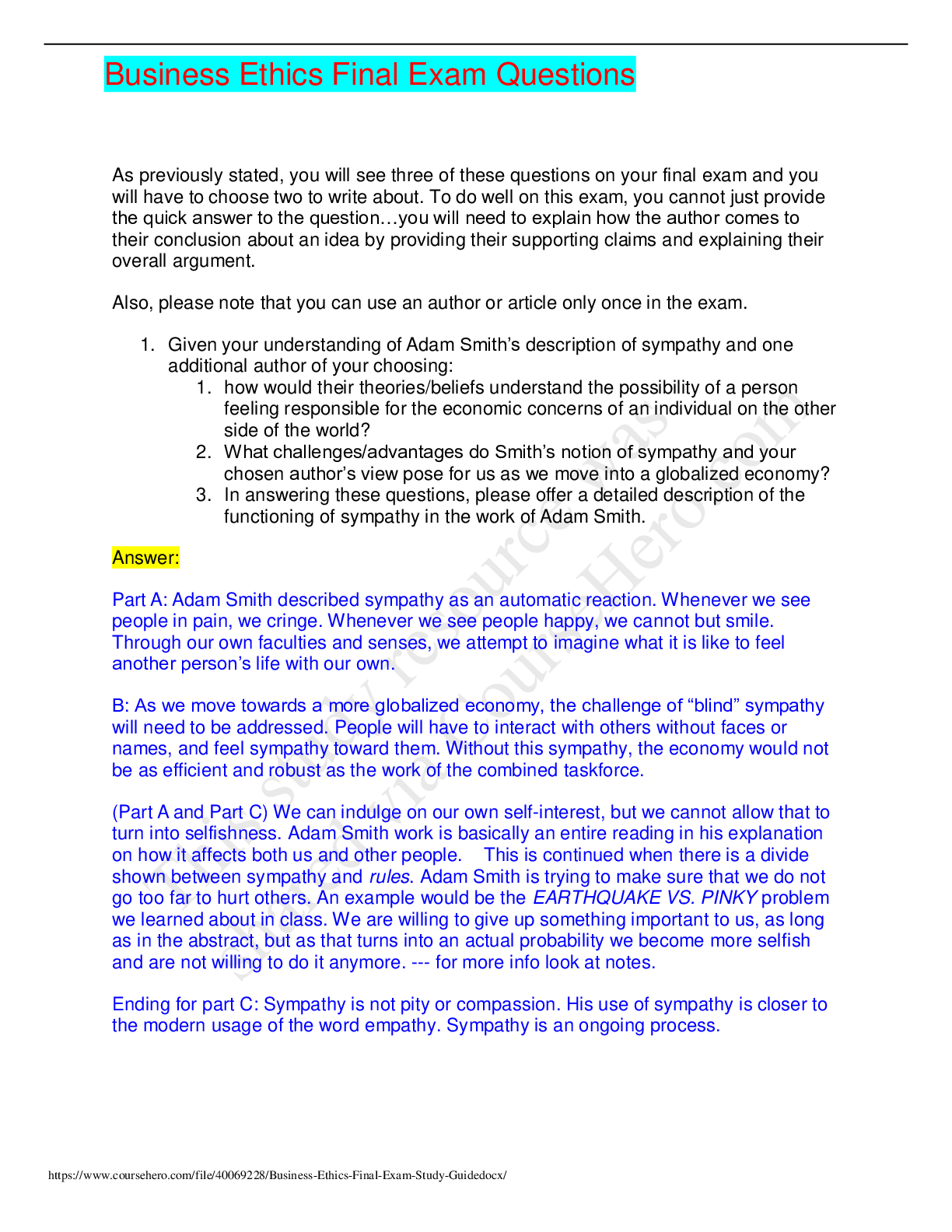
Reviews( 0 )
Document information
Connected school, study & course
About the document
Uploaded On
Mar 13, 2021
Number of pages
8
Written in
Additional information
This document has been written for:
Uploaded
Mar 13, 2021
Downloads
0
Views
62

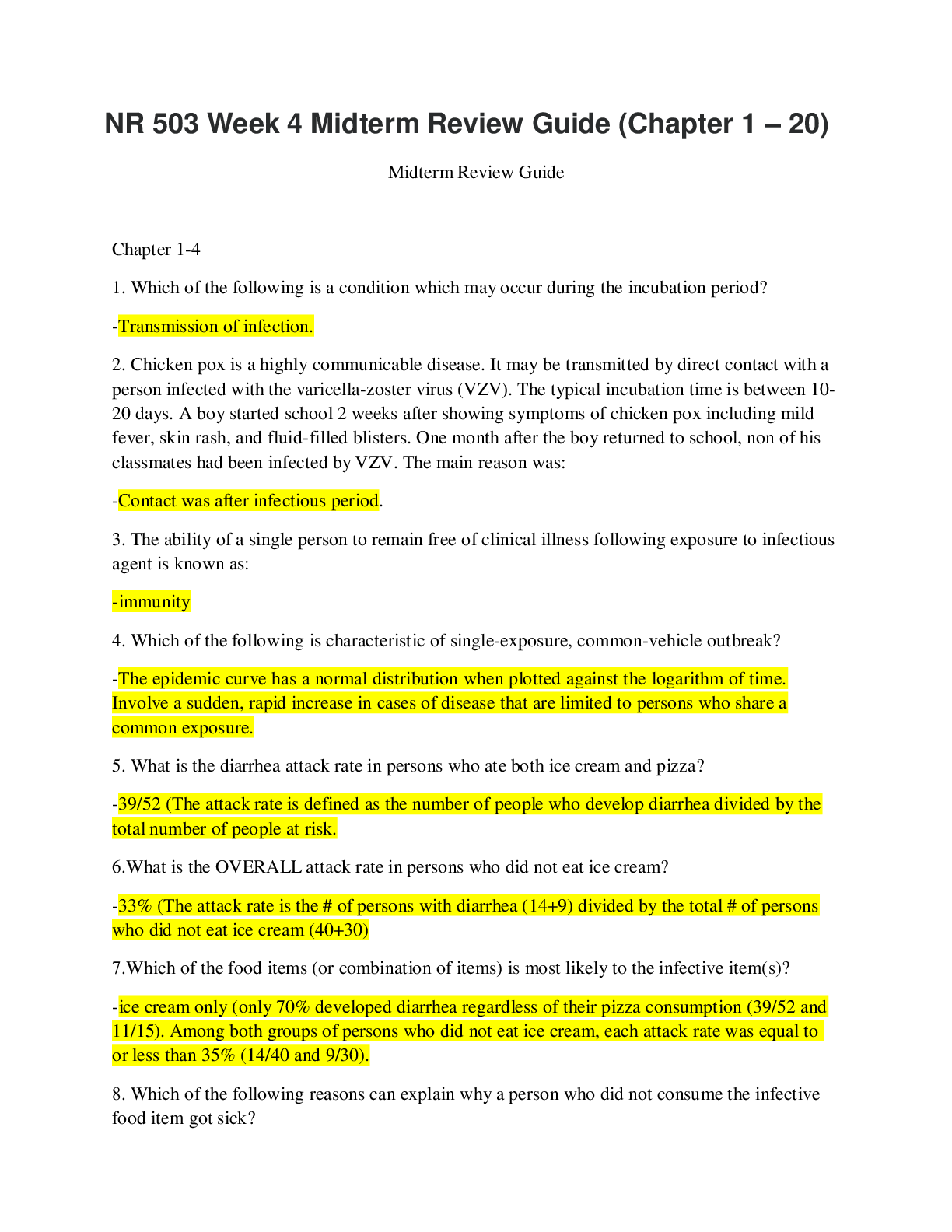
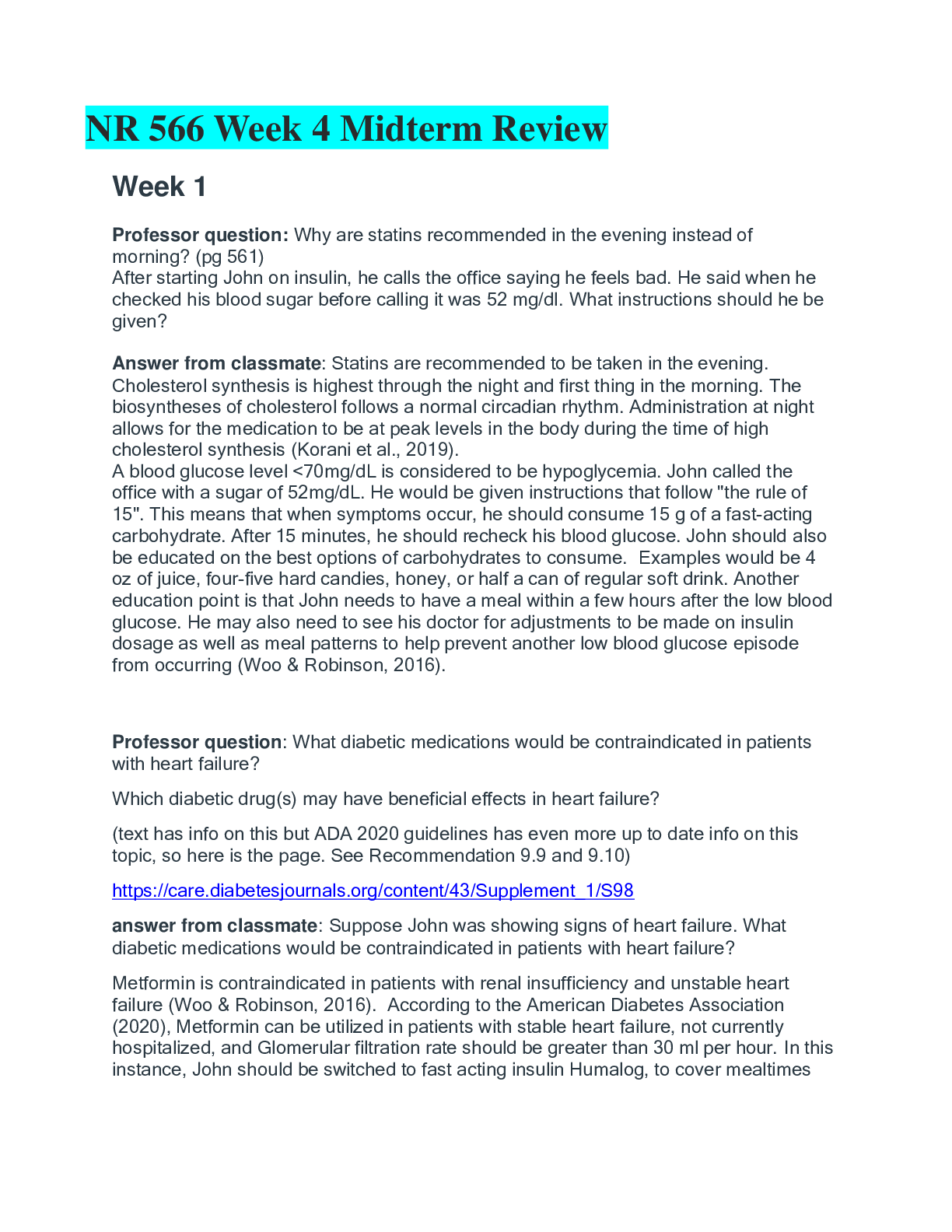
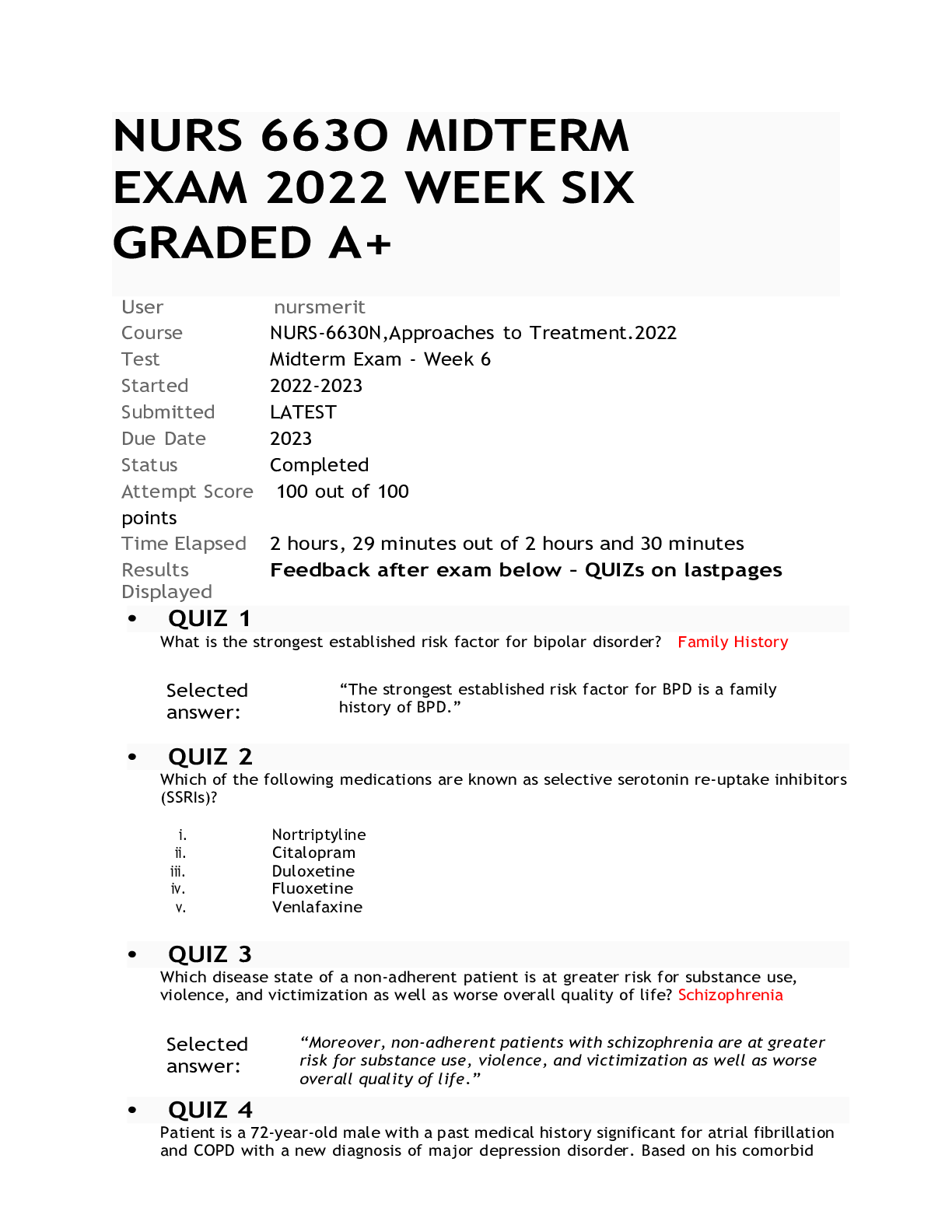
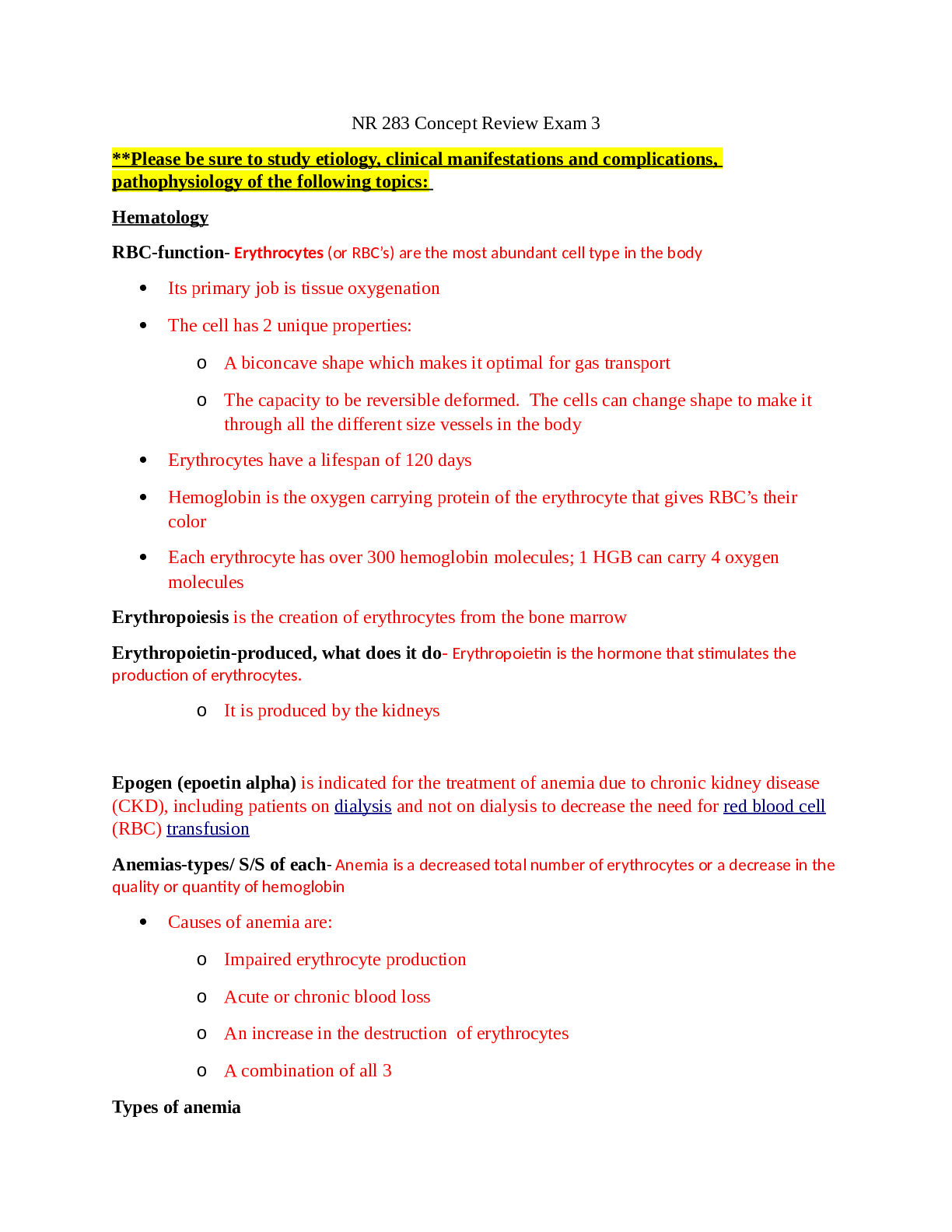
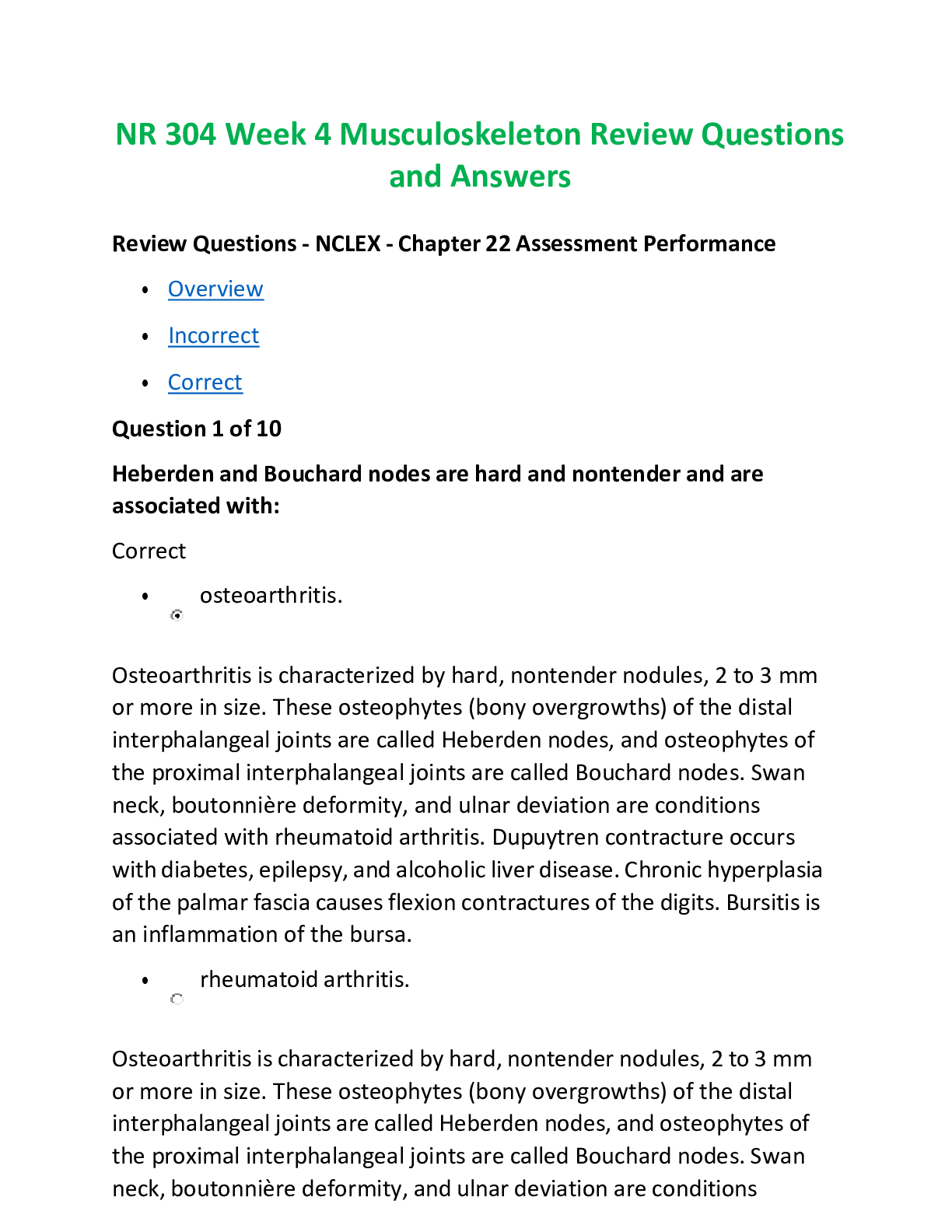
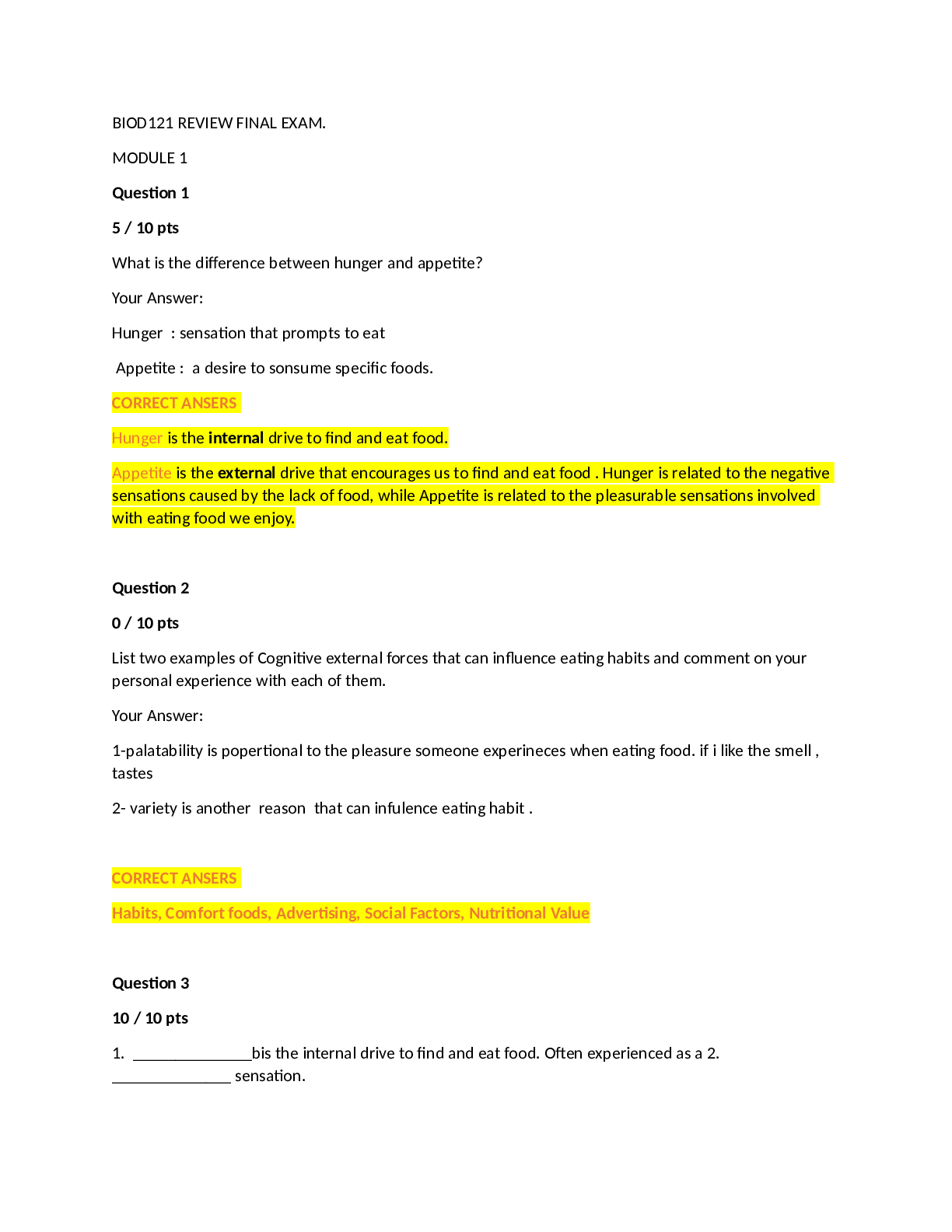
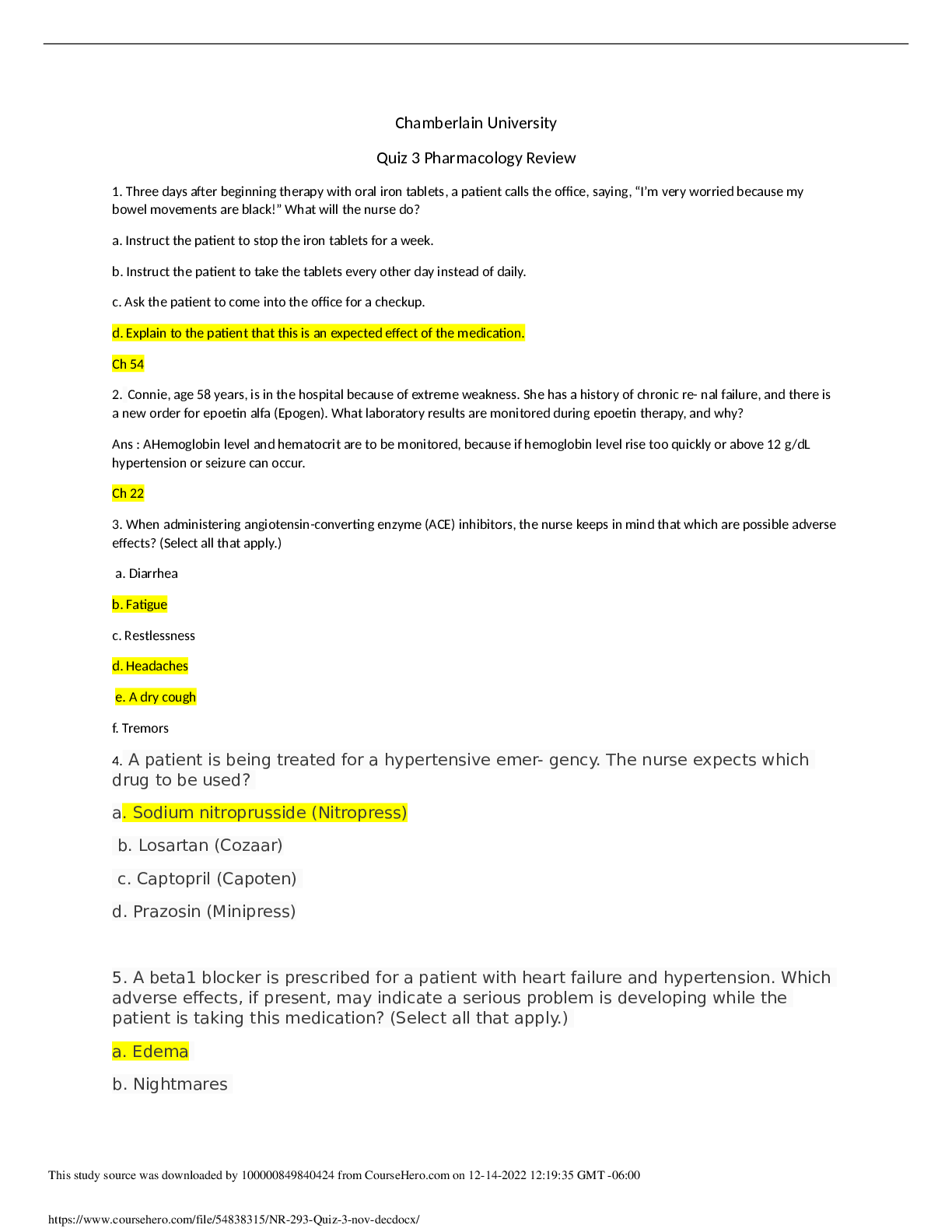
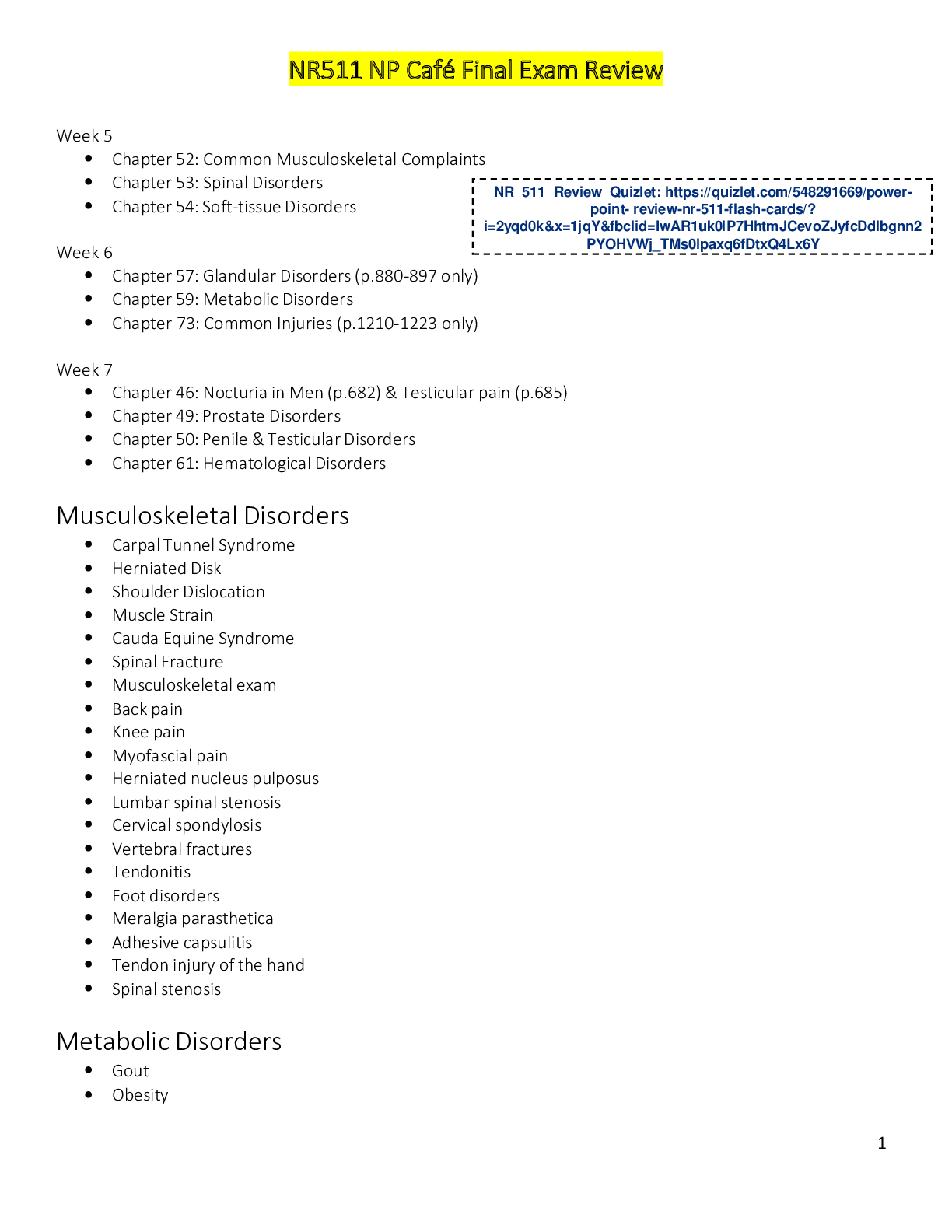
.png)
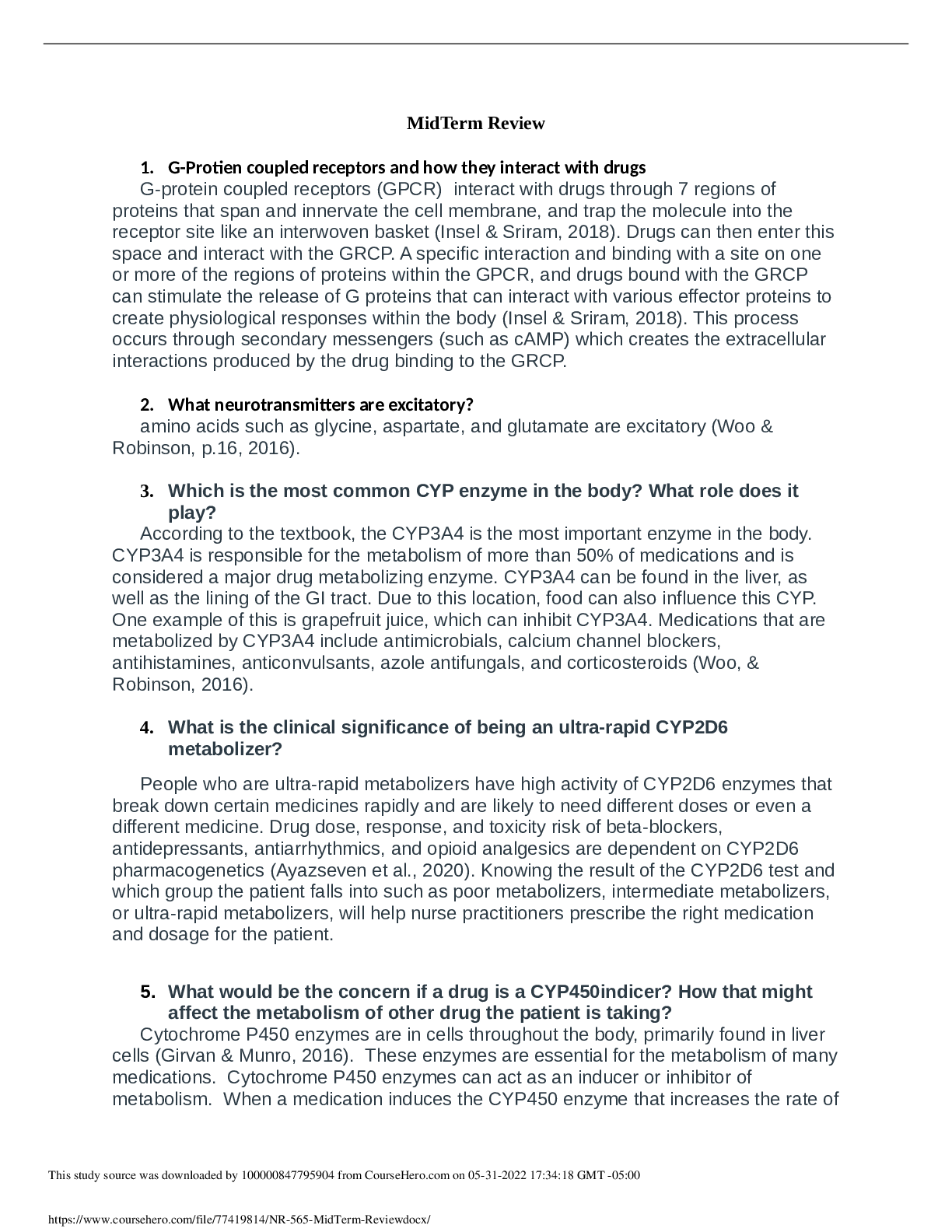
.png)

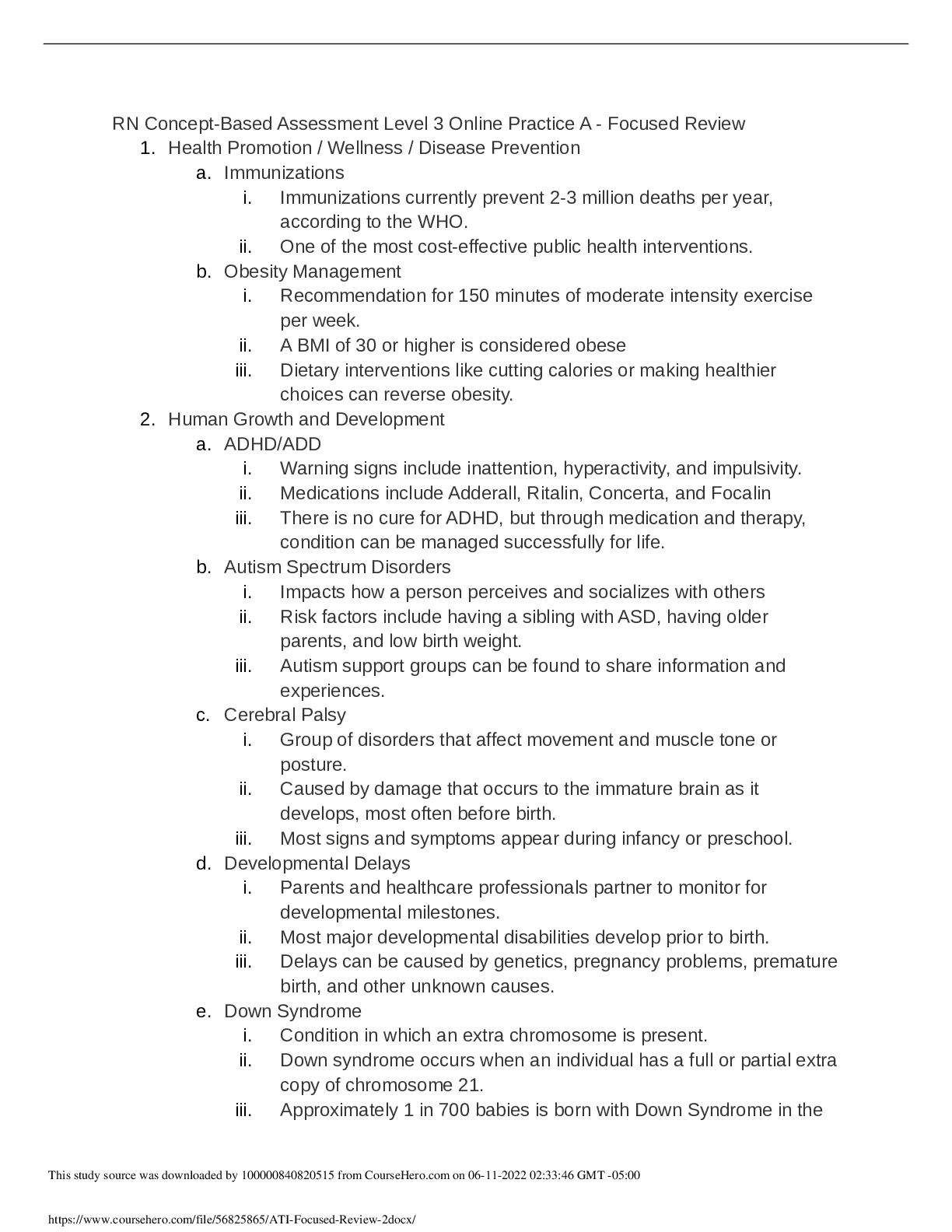
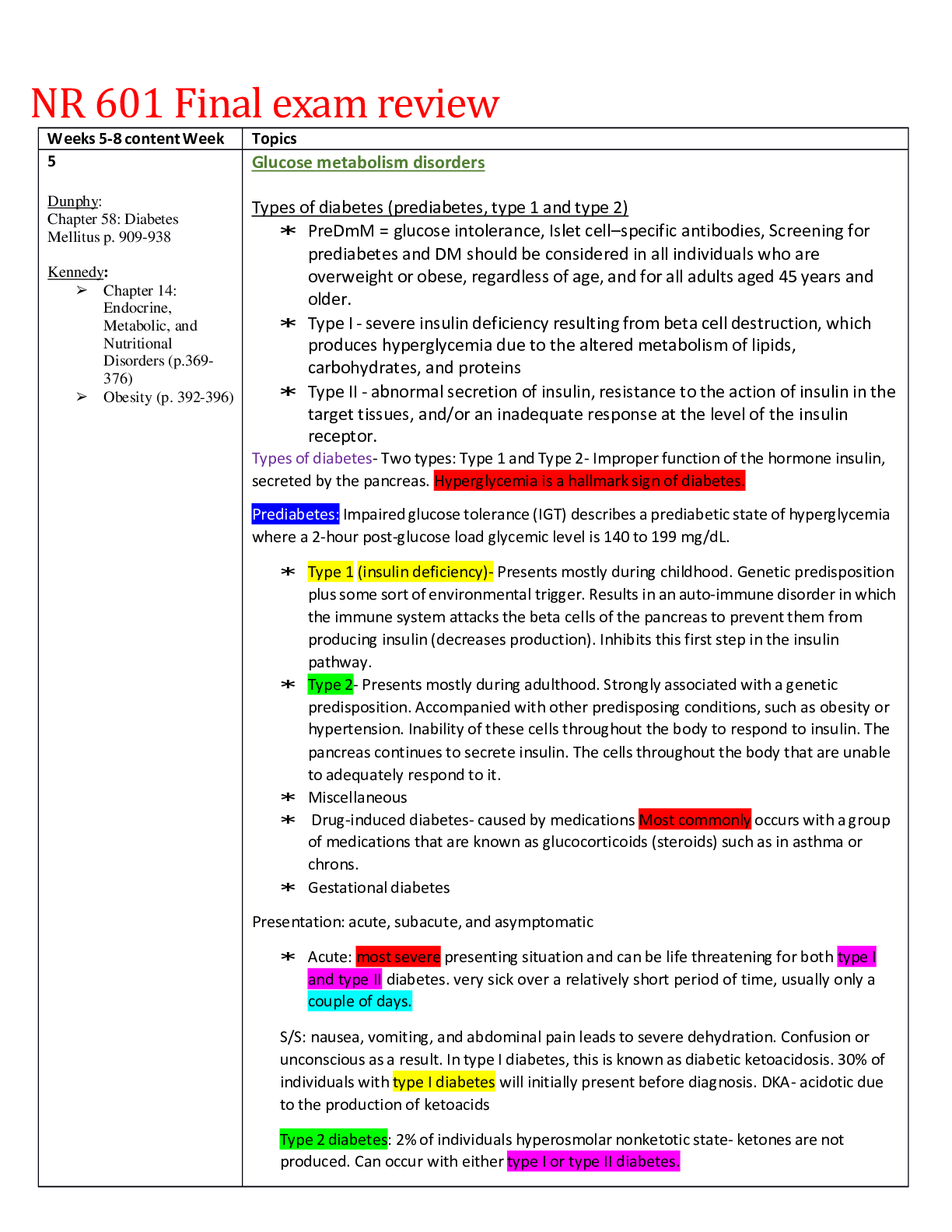
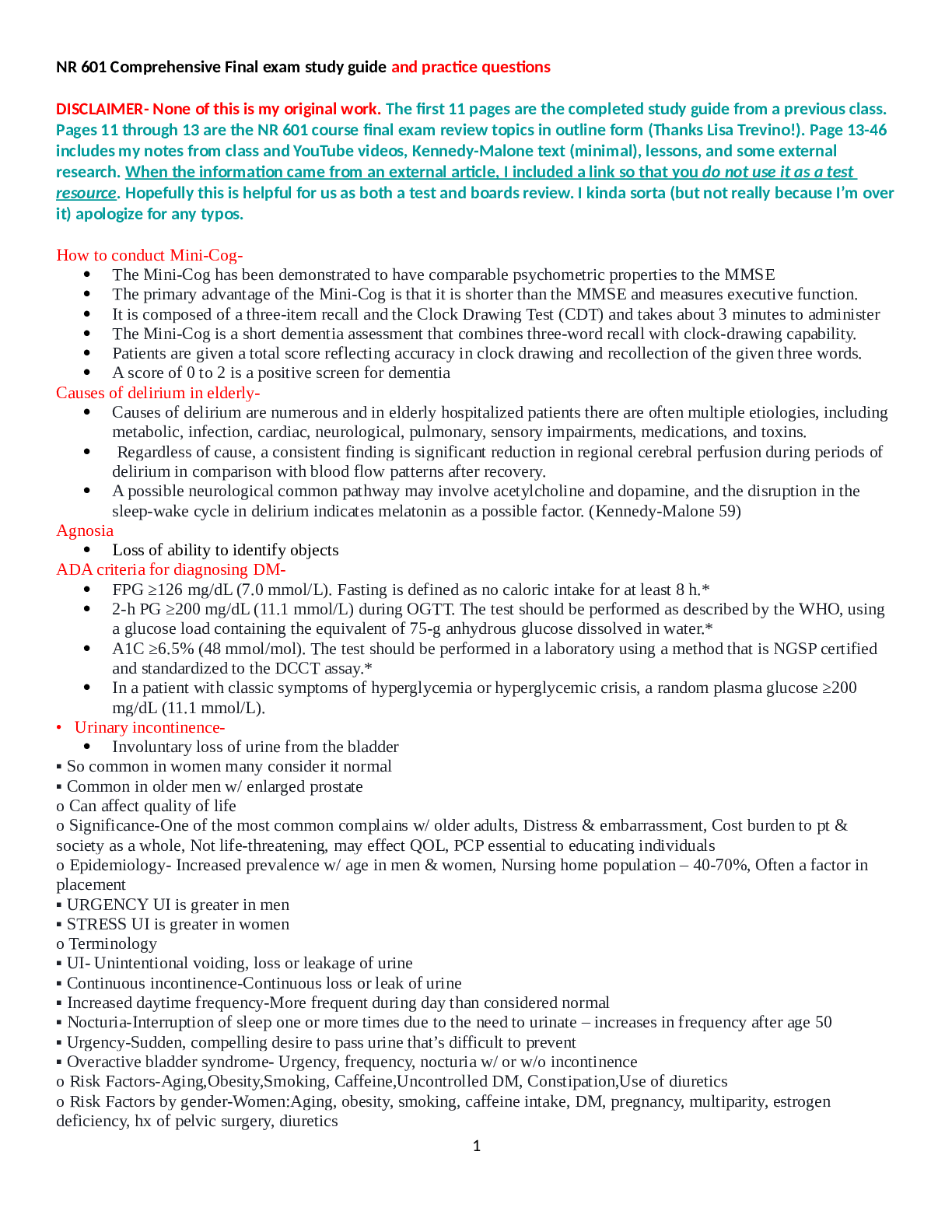
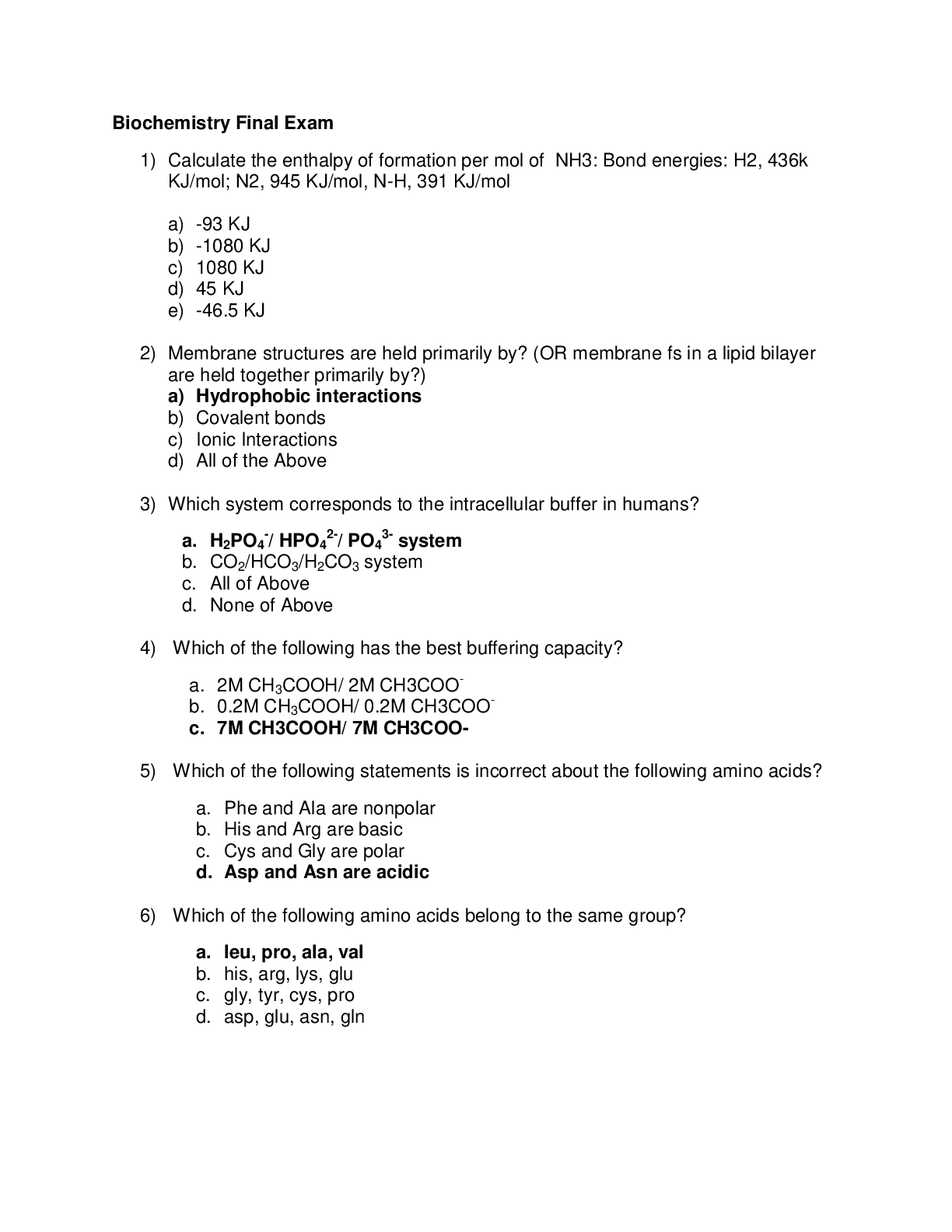
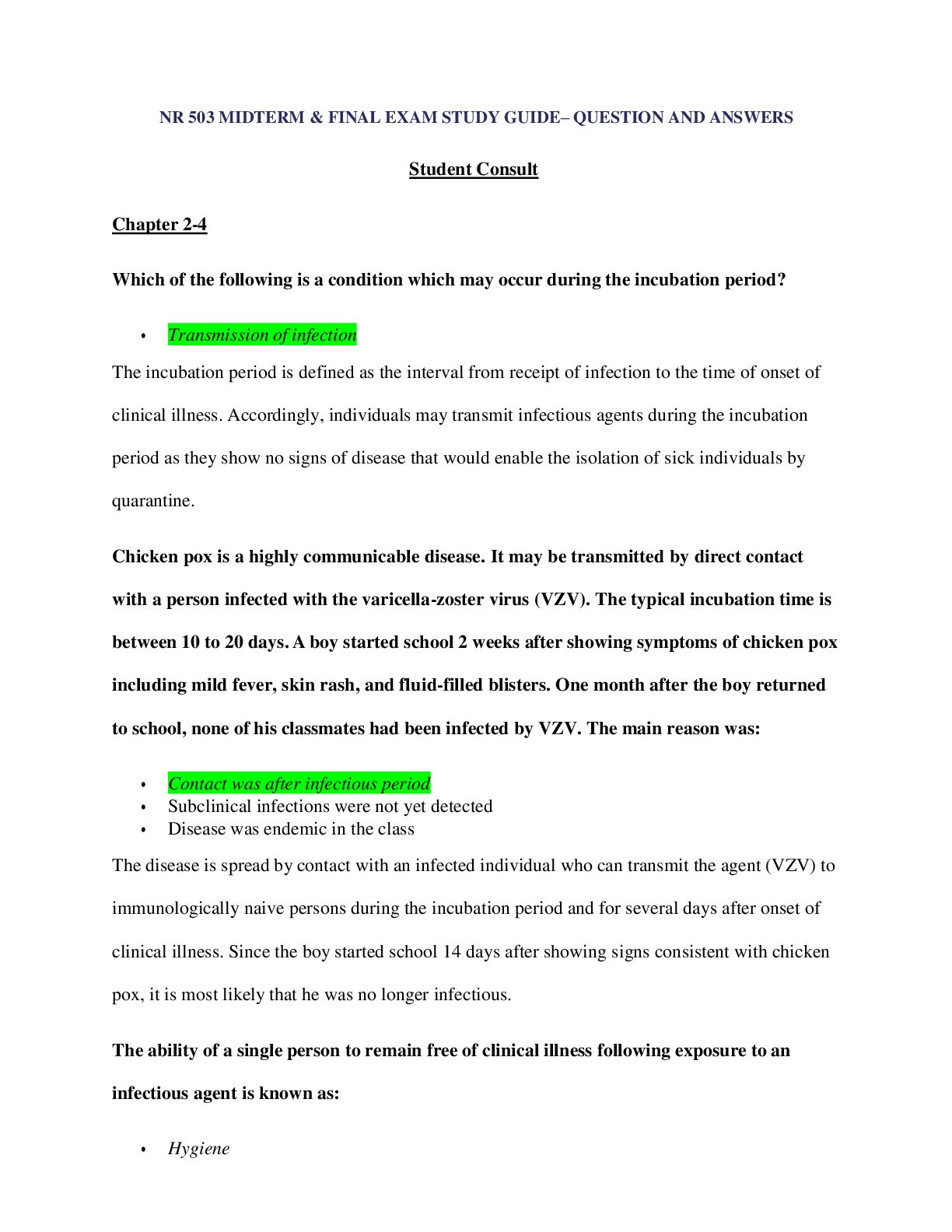
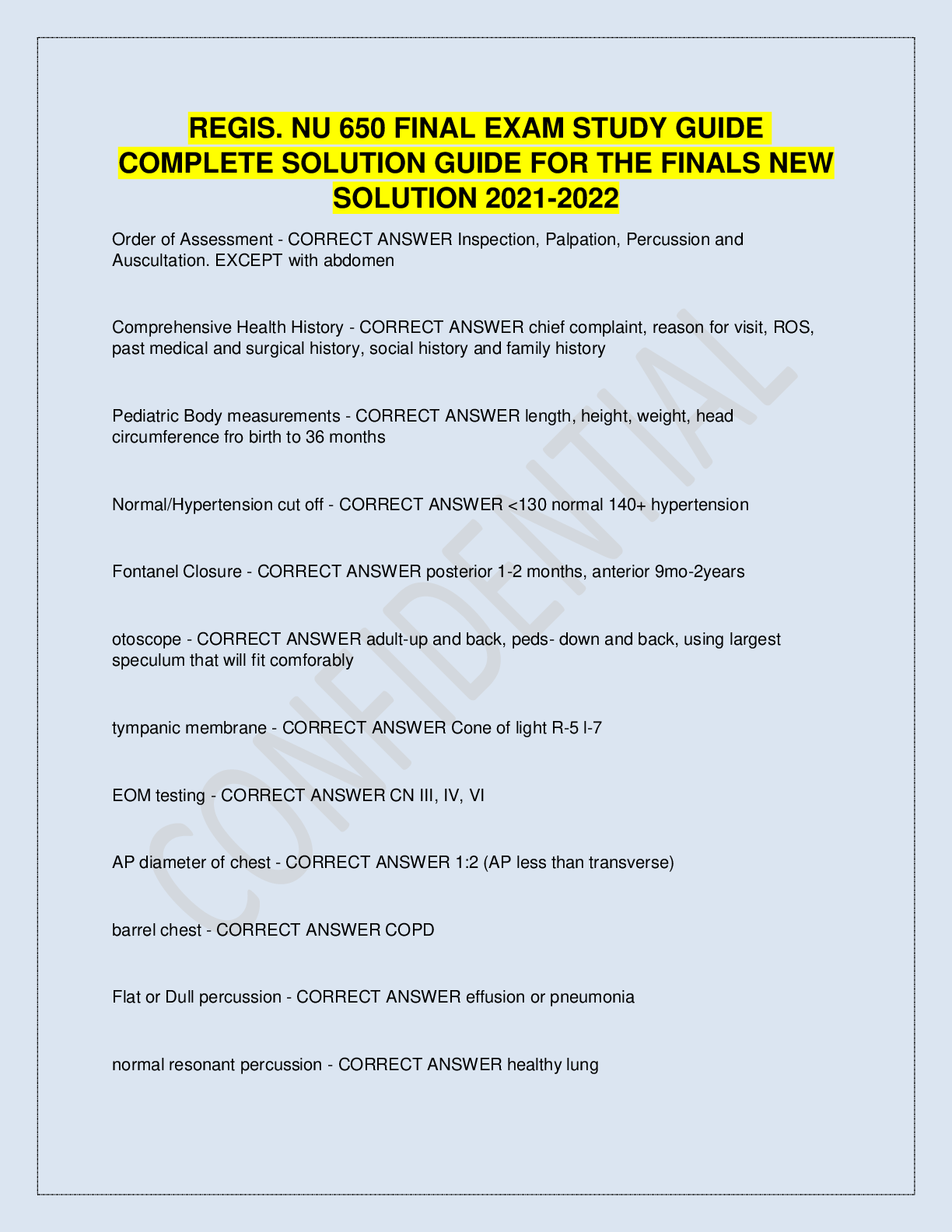
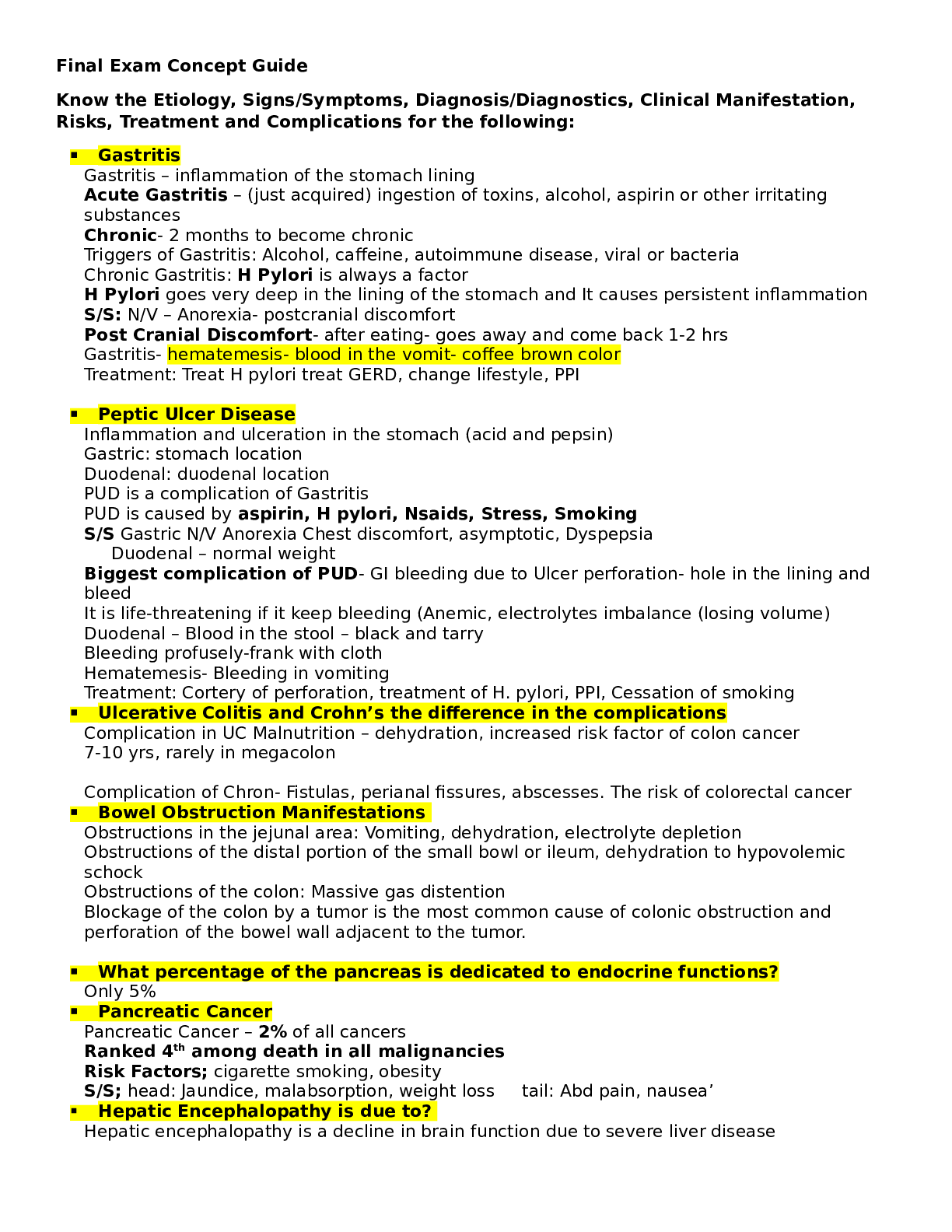
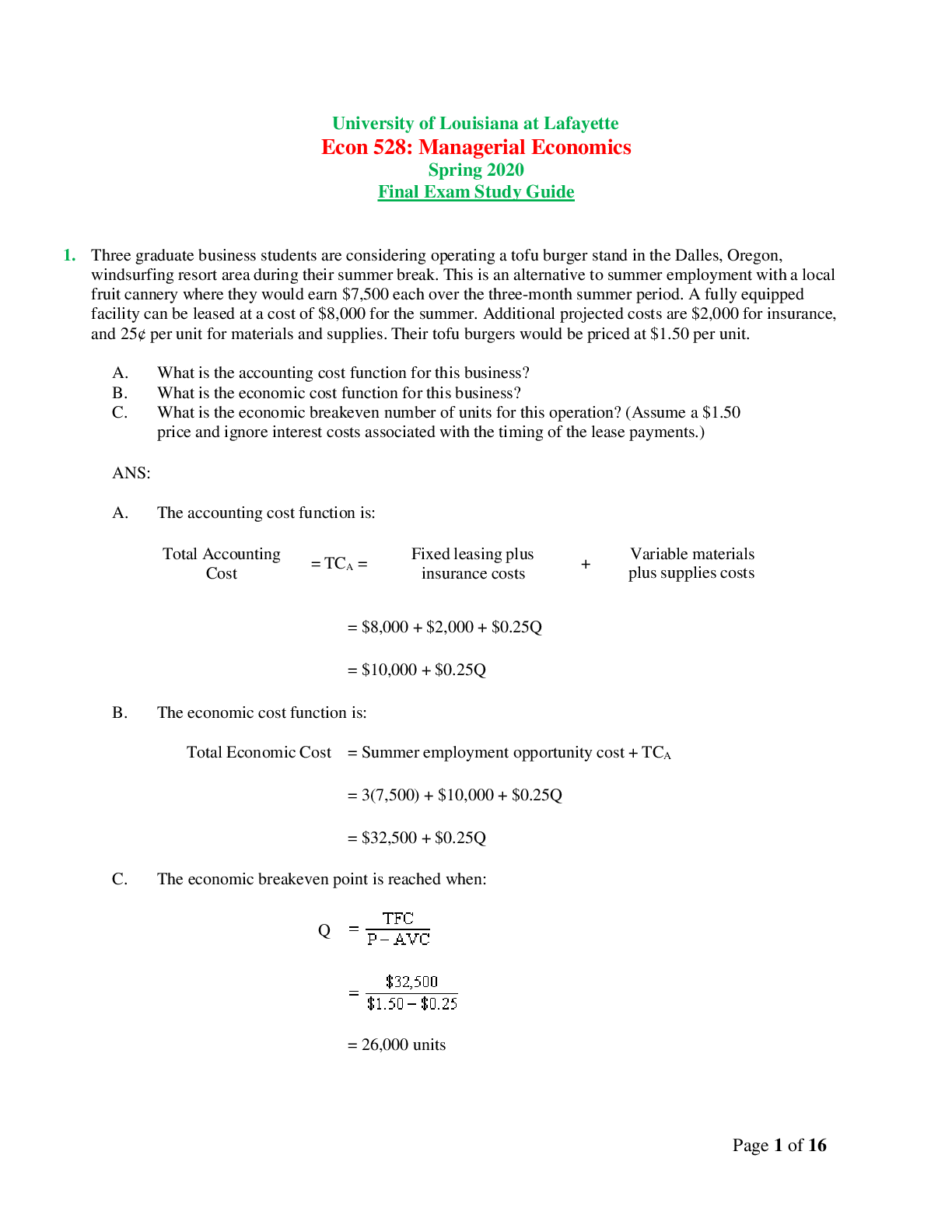
.png)

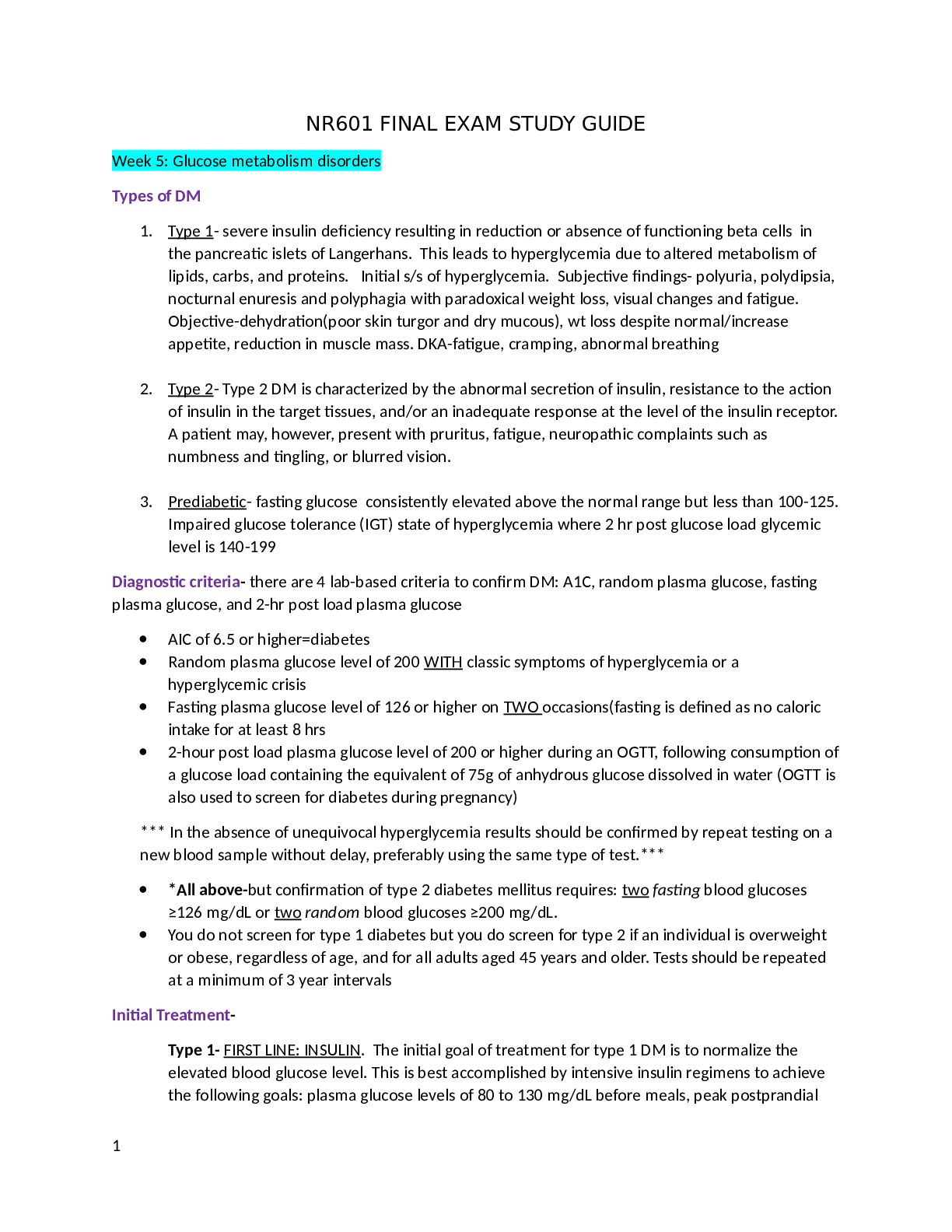

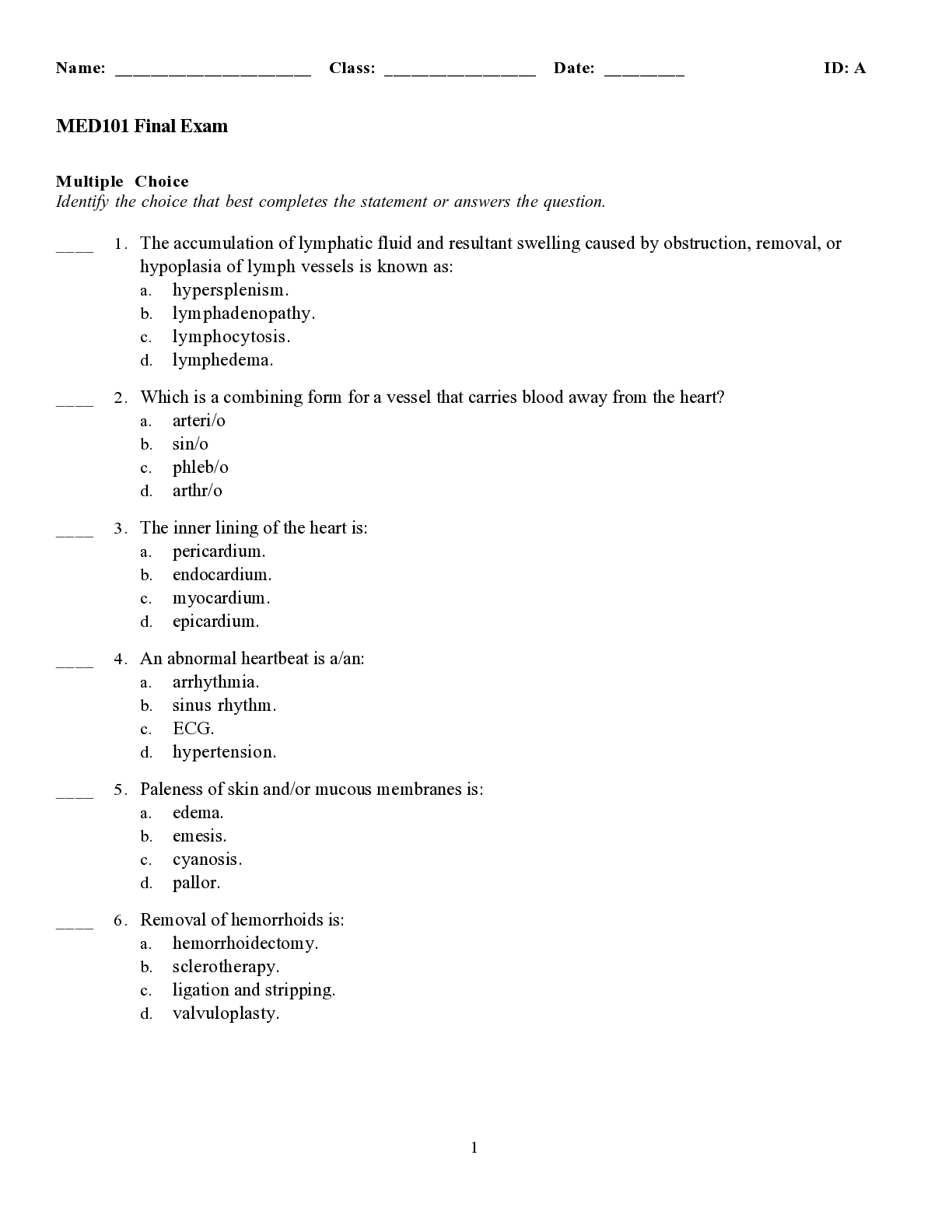

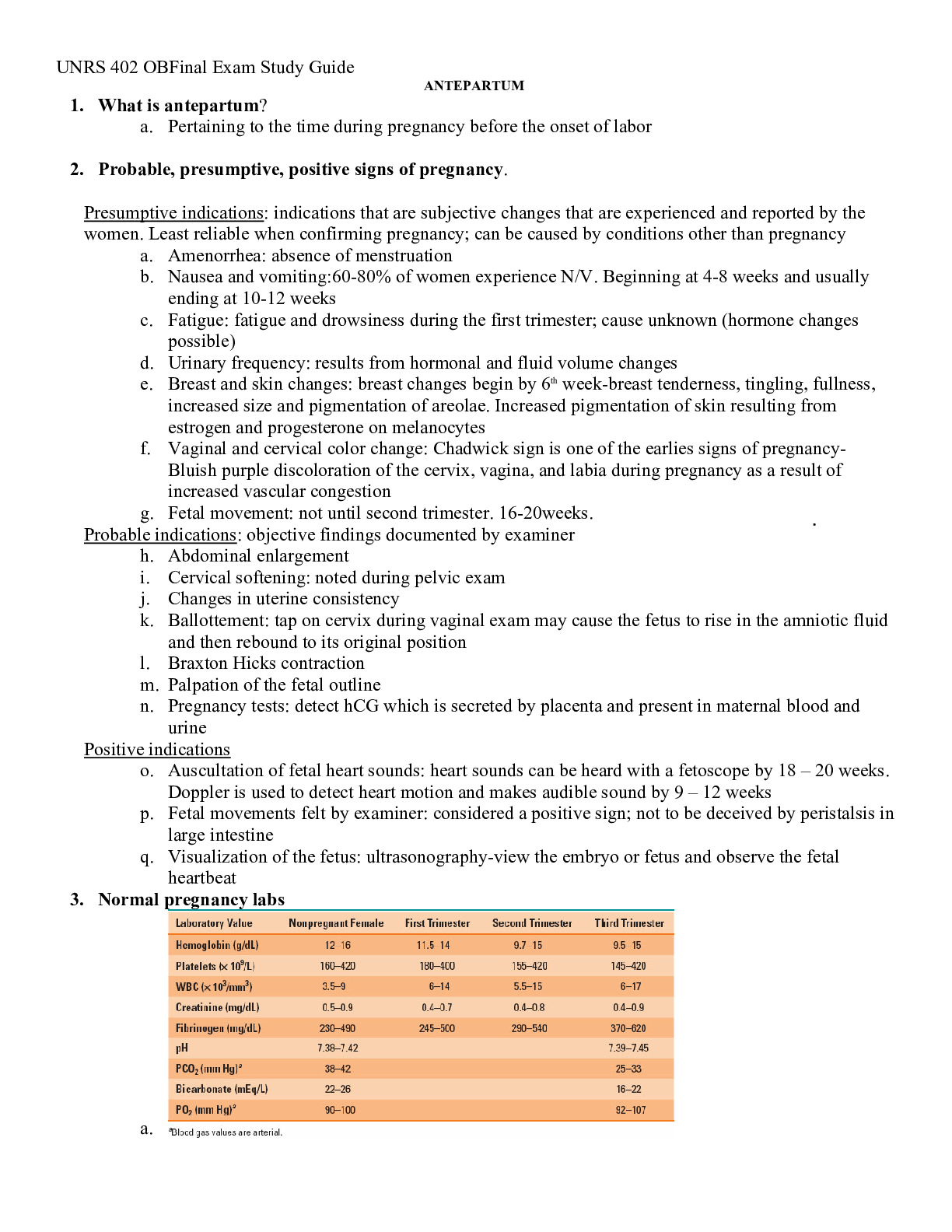
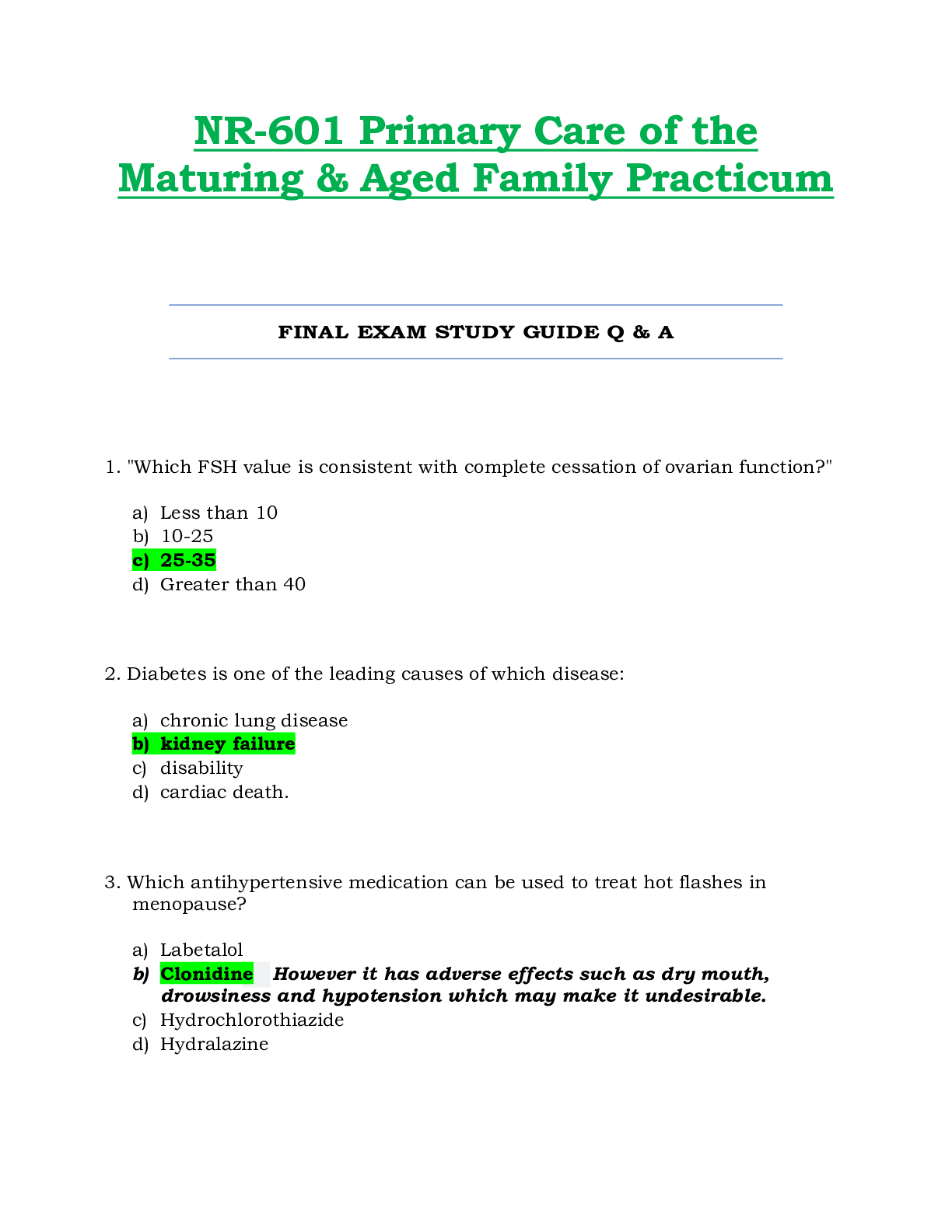
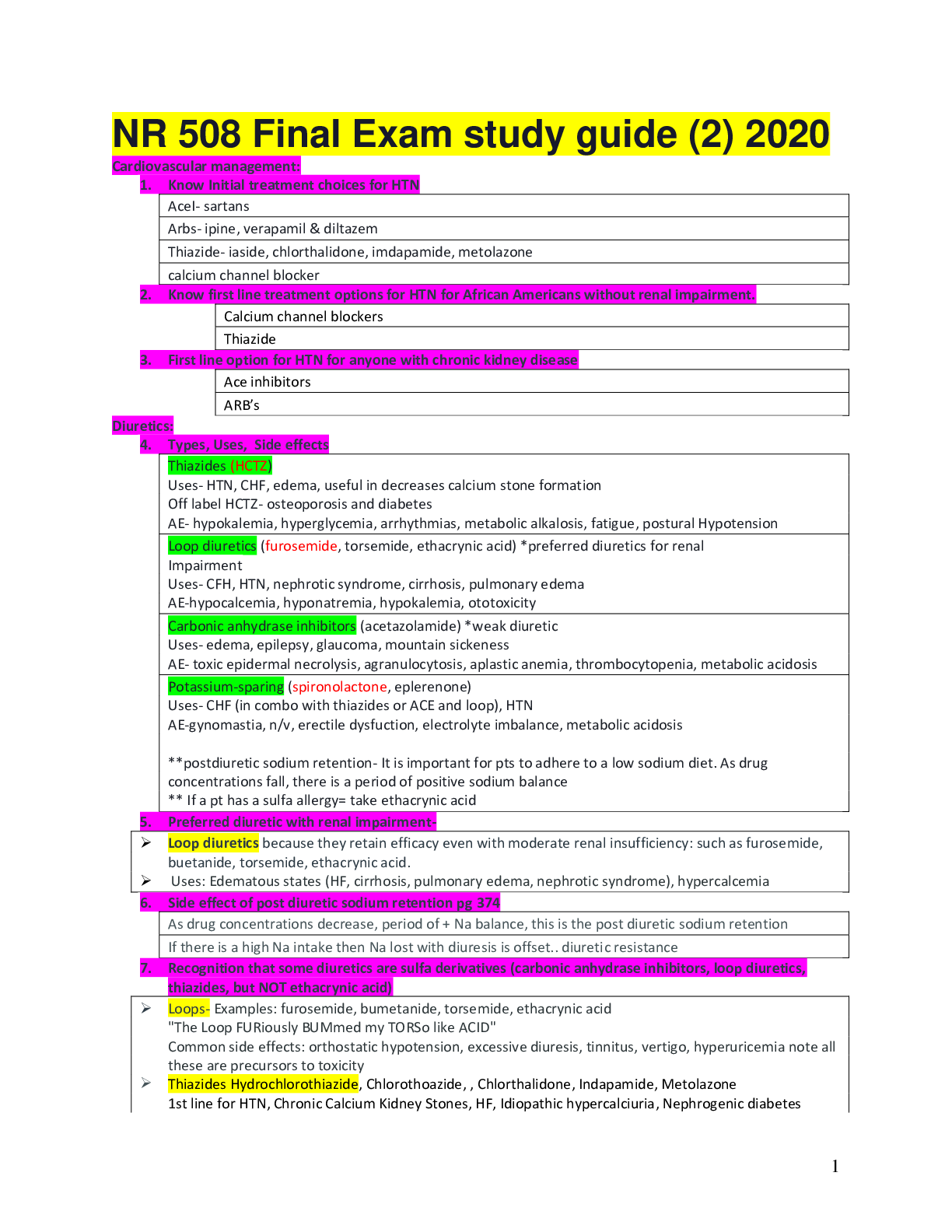
.png)
